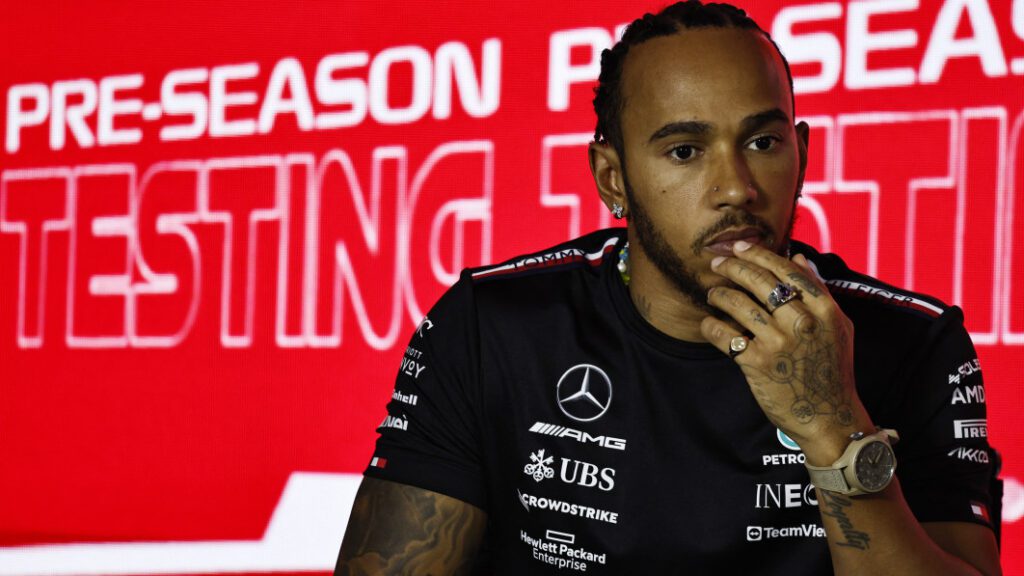F1's 'moral vacuum': Drivers urged to tackle human rights in Bahrain, Saudi Arabia

Lewis Hamilton and other Formula One drivers can help steer the sport away from a ‘moral vacuum’ by speaking out at season-opening races in Bahrain and Saudi Arabia, human rights campaigners said on Tuesday.
Paul Scriven, a member of Britain’s House of Lords, told a news conference organized by the London-based Bahrain Institute for Rights and Democracy (BIRD) that the sport was at a fork in the road.
“There are two roads that F1 can now take. One is a road which is a moral vacuum where the leaders and the administrators seem to going,” he said. “There is another road that some drivers seem to be taking … who understand they can use their platform and their sport not just for sport’s sake but for good and for change and that they cannot ignore the human rights abuses in the country that they are driving in.”
Mercedes driver Hamilton, a seven-times world champion, has used his profile to address rights abuses and racial injustice around the world.
The sport’s governing body updated the sporting code last December requiring drivers to get prior written permission to make or display “political, religious and personal statements or comments.”
Hamilton, who said in 2021 that Formula One cannot ignore issues in the countries it visits, has vowed to continue speaking out and other drivers have said the same.
Bahrain hosts the opening race on Sunday (March 5), with the Saudi Arabian Grand Prix on March 19.
BIRD said human rights in the two countries had been “increasingly trampled on” since last year’s grands prix and accused Formula One of helping to “facilitate sportswashing of abuses.” It called for an independent enquiry to examine the role of races in human rights violations.
The accusation of ‘sportswashing’ is leveled at countries who are perceived to be using sport to improve a tarnished image abroad.
BIRD said it had written to Formula One chief executive Stefano Domenicali urging him to meet victims and use “all available leverage” to seek the release of jailed activists.
A statement was read out on behalf of families of 12 prisoners BIRD said were facing death sentences in Bahrain. The Sunni-ruled state, a U.S. ally, crushed an anti-government uprising led largely by the Shi’ite Muslim community in 2011.
Bahrain’s government has said it “actively supports the role Formula One can play in shedding light on human rights issues in all countries it operates in.”
Scriven said Formula One drivers would be justified in refusing to race in certain countries if the sport failed to put in place a proper ethical framework.
Formula One said it sought to be a positive force everywhere it raced and had made its position on human rights and other issues clear to all partners and hosts.
A spokesman for the FIA, which does not draw up the calendar, said it could not interfere in the internal affairs of a sovereign state but was not insensitive “to any potential hardships endured by the people concerned.”




